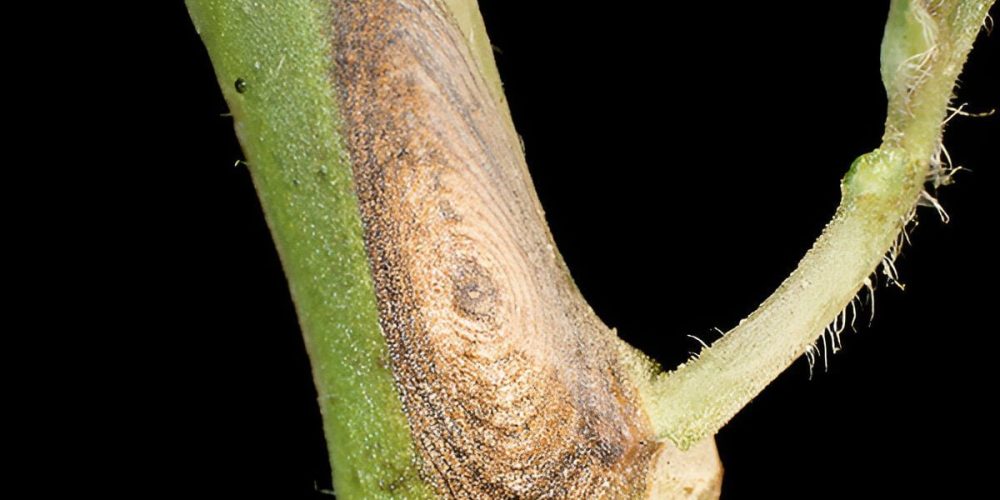Table of contents of the article
ToggleZucchini early blight is a fungal disease that infects zucchini plants in their early stages, causing dark spots on the leaves and impairing productivity. In this article on your website, WORLD OF PLANTS, we will review methods of prevention and treatment.
Symptoms of early blight in zucchini
- Scientific name : Alternaria solani
- The causative fungus : Alternaria cucumerina
- Yellowish-brown spots with a yellow or green halo form on the leaves.
- It attacks the oldest parts of plants first, before spreading to newer leaves.
- If you leave these spots, they will eventually expand and merge. They become necrotic and cause the leaves to curl and die.
- These affected areas may fall off and leave holes in the leaves, or the entire leaf may die and fall off (in extreme cases the entire plant may be peeled).
- The flowers also often drop and cankers may appear on older stems.
- Affected fruits may develop sunken spots, become covered with mold, and fall.
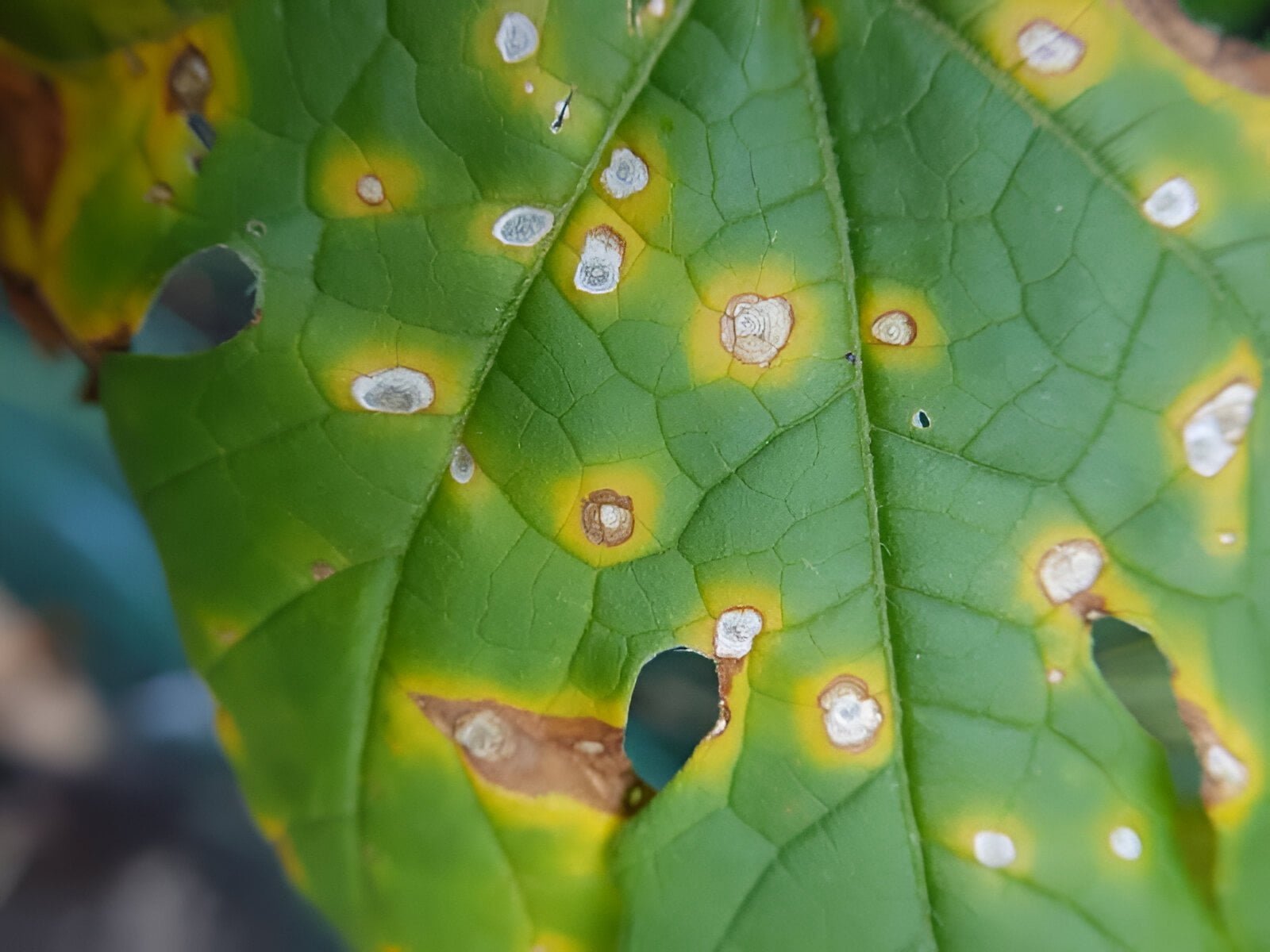
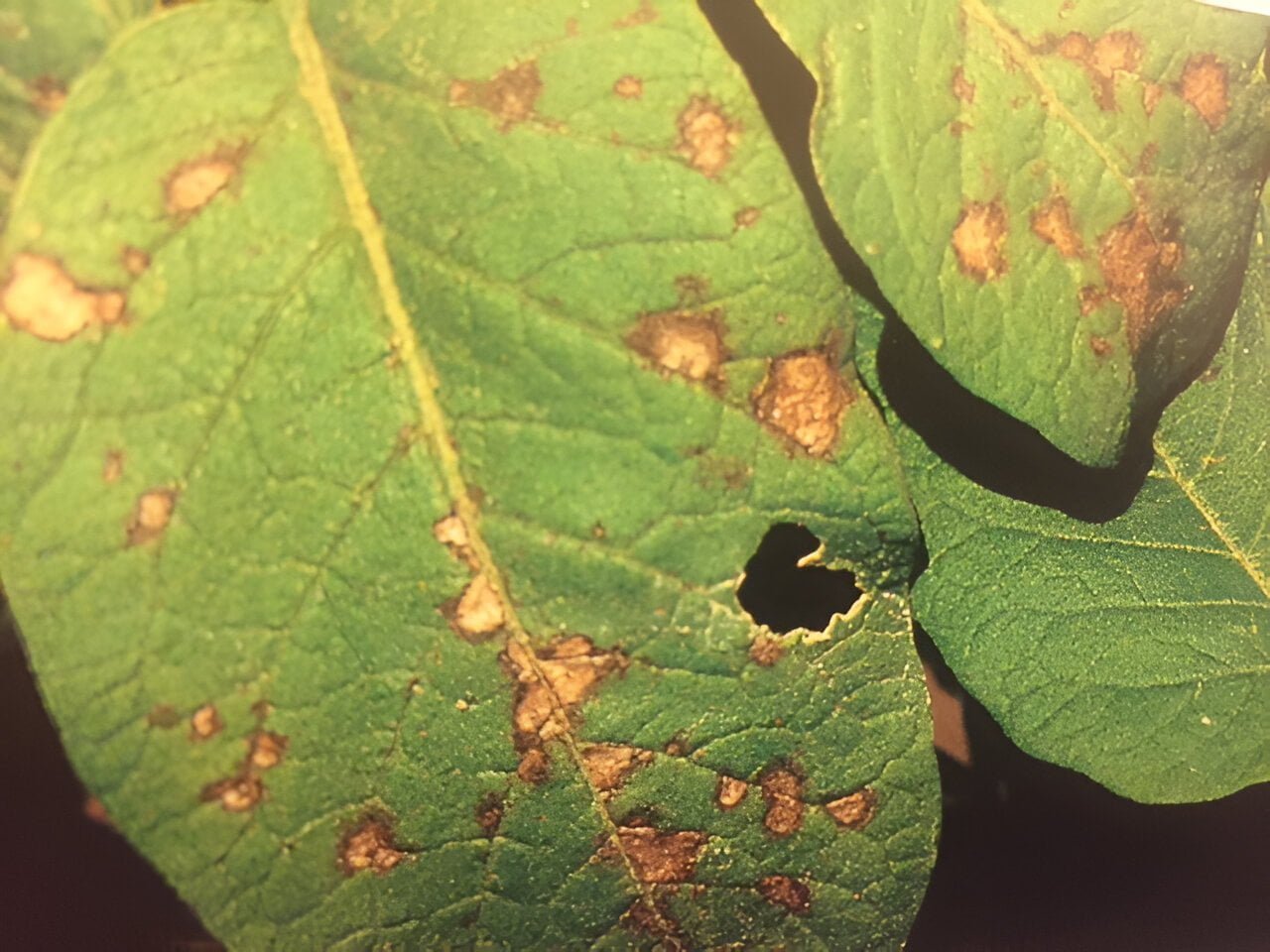
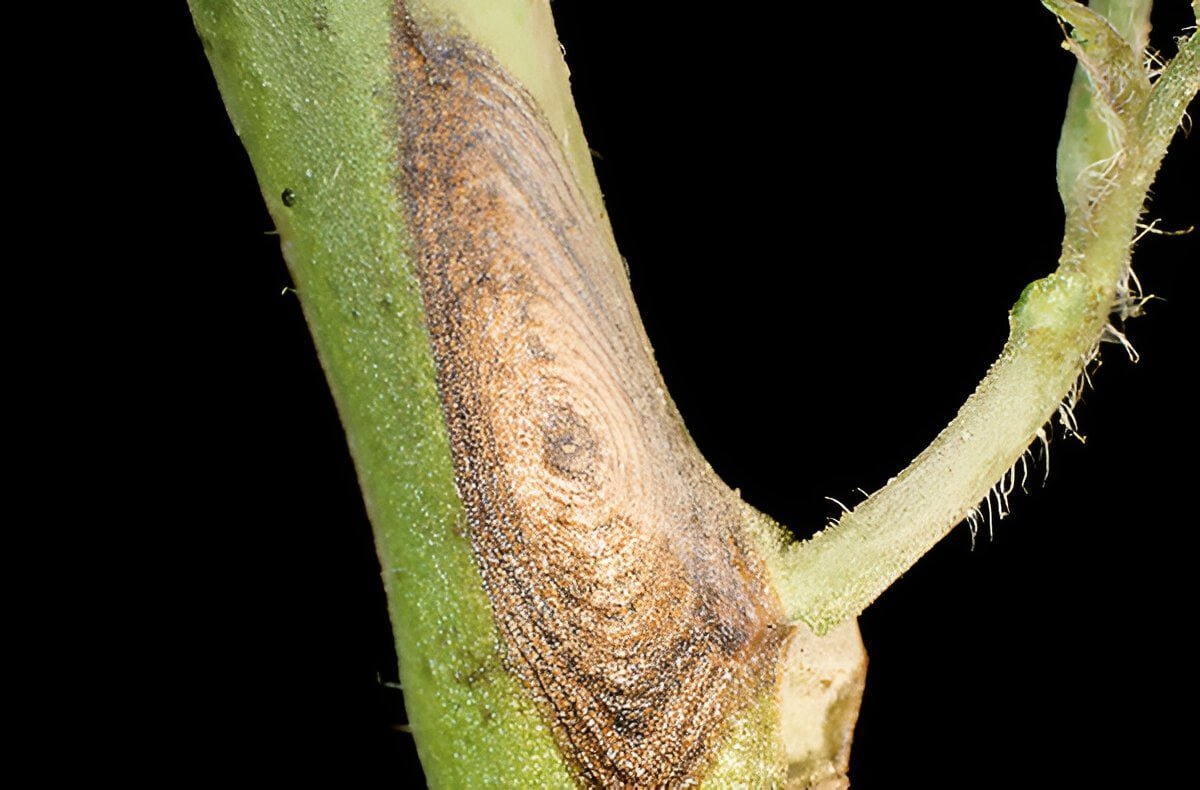
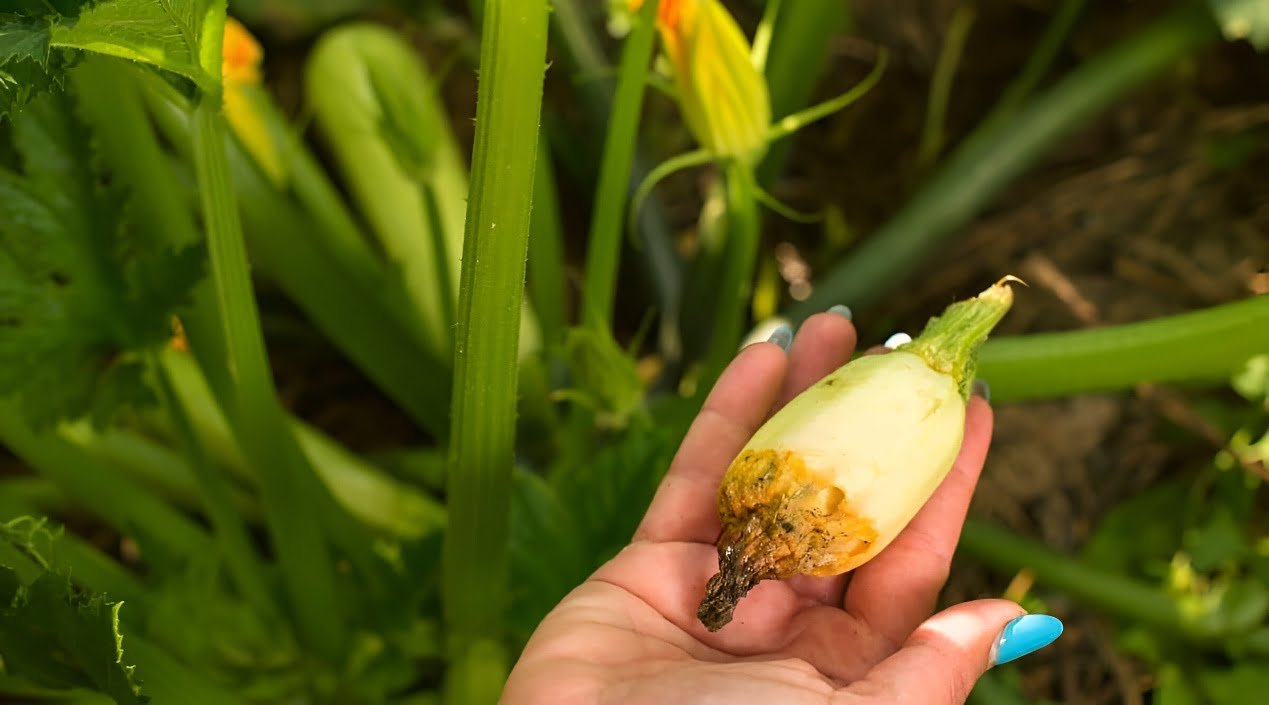
Causes of early blight in zucchini
- This disease is spread by water, and the spores need moisture to germinate
- Weeds.
- Do not prune and remove the affected parts.
- It is transmitted through seeds.
- Failure to adhere to agricultural distances.
- Heavy rain, wet soil, high humidity and warm weather.
Suitable conditions for the spread of early blight in zucchini
- This disease prefers hot, humid areas with abundant rainfall, and usually appears in mid-summer.
- The presence of crop residues and harmful weeds and not getting rid of them (the development of fungal infection can be exacerbated by an increase in the number of germs on other hosts, such as weeds).
- The severity and spread of infection increases in fully mature plants.
Development cycle of early blight in zucchini
- Early blight fungus Imperfecta reproduces asexually by means of conidia
- The fungus's life cycle begins with conidial spores found in infected crop residues from the Cucurbitaceae family.
- Mushroom spores are spread by wind and insects. They enter through small wounds, gaps, or direct penetration.
- Infection usually begins on older leaves close to the ground.
- The fungus takes a long time to grow and the infection eventually appears. More spores are created and secondary infections spread in the field via conidia to infect other plants or other parts of the same plant. In the same growing season, all parts of the plant can be infected.
Losses of early blight spread in zucchini
- The fungus can also cause lesions to appear on fruits, leading to poor quality fruit and a decrease in the quality of the crop.
- Plant leaves fall, which affects the development of the fruit.
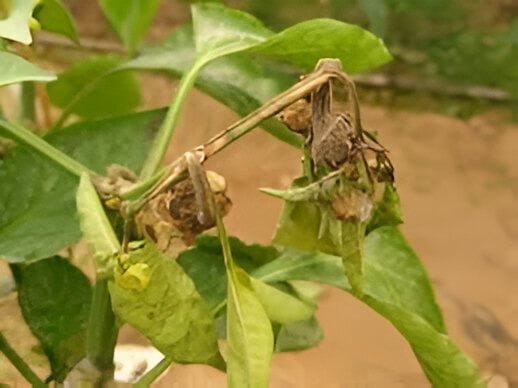
Control strategy
Preventive measures to prevent early blight in zucchini
- Avoid watering plants from above, water only the base of the plants.
- Always remove weeds, as they can also be home to fungi
- Prune affected leaves
- Be sure to clean the field in the fall, this disease can overwinter in the soil or on plant residues.
- Clean any tools you used to remove damaged foliage
- Never fertilize infected plants
Chemical and organic control recommendations against early blight in zucchini
- Organic control Treating seeds before planting: Kill the germs on the seeds by treating them with hot water (127 degrees Fahrenheit for 25 minutes).
- Rotate your crops every 2-3 years
- Chemical control : Spraying with copper-based fungicides is a good option. Apply every 7-10 days.
- Biofungicides containing Bacillus subtilis can also be effective.
In conclusion, we would like to note that we, at the world of plants website, offer you all the necessary services in the world of plants, we provide all farmers and those interested in plants with three main services::-
- Artificial intelligence consulting service to help you identify diseases that affect plants and how to deal with them.
- Blog about plants, plant diseases and care of various crops ... You are currently browsing one of her articles right now.
- An application that provides agricultural consultations to clients, as well as a service for imaging diseases and knowing their treatment for free – Click to download the Android version from Google Play Store، Click to download the IOS version from the Apple App Store.
References
- Jamiołkowska, A., & Sawicki, K. (2011). Biodiversity of fungi colonizing aboveground parts of zucchini (Cucurbita pepo L. var. giromontina). Folia Horticulturae, 23(1), 29-35
- Commercial Vegetable Production in Wisconsin (A3422) from the UW Extension Learning Store. This guide offers the latest recommendations for disease, insect, and weed management in Wisconsin's most common commercial vegetable crops. Also included are lime and fertilizer recommendations as well as insect identification information and keys.
- Moumni, M., Allagui, M. B., Mancini, V., Murolo, S., Tarchoun, N., & Romanazzi, G. (2020). Morphological and molecular identification of seedborne fungi in squash (Cucurbita maxima, Cucurbita moschata). Plant Disease, 104(5), 1335-1350
- Morphological and Molecular Identification of Seedborne Fungi in Squash (Cucurbita maxima, Cucurbita moschata) – The American Phytopathological Society
- Biodiversity of fungi colonising aboveground parts of zucchini – sciendo
- Bush Zucchini – smartgardener
- HOW TO IDENTIFY AND CONTROL COMMON ZUCCHINI DISEASES – gardenerspath
- How to Get Rid of Blight on a Zucchini Plant – weekand
- Early Blight – planetnatural




